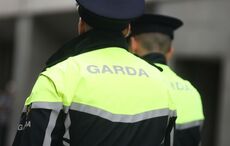The former prime minister was speaking during a cross-questioning by members of parliament, at the Northern Ireland affairs committee, at Westminster. He called the letters issue an “essential component” of keeping the republican party, Sinn Féin, in negotiations. He also accepted that mistakes had been made in how the plan was administered.
However, Blair said “Without dealing with this issue, we would not have had a Northern Ireland peace process.”
In 1999, after the 1998 Good Friday agreement, these “on-the-runs” letters were sent to more than 200 republican paramilitary suspects. These were people who had enough evidence against them to form a prosecution. The letters told them they were no longer of interest to the police.
This covered only those convicted of paramilitary crimes and jailed and they became eligible for release but it did not cover those suspected of paramilitary crimes and those who had been charged and has escaped. This category became known as “on-the-runs.”
On Tuesday Blair said he agreed completely with the assessment made by Lady Justice Hallett, in an inquiry published in July 2014. Hallett conclude that the “on-the-run” scheme was lawful but had not been administered properly.
In early 2014 the prosecution of John Downey, charged with involvement in the 1982 IRA Hyde Park bombings, that killed four soldiers, collapsed when it was discovered he was sent a letter assuring him he would not be prosecuted.
The former prime minister admitted he had never heard of John Downey until his case was in court.
He described sending the letter to Downey as a mistake and took full responsibility for it. He apologized to those affected for his error.
Blair said “I am sorry for those people and I apologize to those people who have suffered as a result of that.
But I am not going to apologize for sending those letters to those who should have received those letters, because without having done that, we would not have a Northern Ireland peace process.”
He refuted the idea that the letters had been sent out in secret and said questions had been openly answered in parliament, at the time, about the letters. He added that he was on in the position to dispute the account made by David Trimble, former first minister of Northern Ireland and leader of the Ulster Unionist party and other senior figures who say they didn’t know about the letters.
He said without the letters the whole peace process could have collapsed.
Blair said “It was on a knife edge. I actually thought for a time during that period we’d lost the whole thing…if we hadn’t managed to find a way to get ourselves over what was a horribly difficult period, we would not have got the [Northern Ireland power-sharing] executive up in May 2007.”
In September 2014 Northern Ireland secretary Theresa Villiers said the government no longer stands by the letters and said they should no longer be relied on as a defense.
When asked what he would say to the current government Blaire said “You inherited a peace process that worked, but be careful with it. It’s fragile still.”
Speaking to the BBC, following the hearing, Christopher Daly, whose brother was killed in the Hyde Park bombing, said "I think both myself and the other families directly impacted by Downey's case will appreciate the fact that Tony Blair decided to appear in person before the select committee and also the fact that he took full responsibility as well as apologizing for the mistake that allowed Downey to walk free.
"A catastrophic mistake was made, as identified by Lady Justice Hallett, and somebody needs to be held to account for that mistake or some organization and it was done on Tony Blair's watch."
Speaking to the Guardian Ann Travers, whose 22-year-old sister, Mary, was shot dead by the IRA coming out of a Roman Catholic Church in 1984, welcomed Blair presence at the inquiry.
She said her late father Tom, a magistrate from Belfast, had been the intended target of the attack. He was badly injured in a shooting in south Belfast.
Travers said “I found some of his evidence disturbing. This scheme meant that some families would never get justice and to that end peace of mind … He [Blair] allowed himself to be blackmailed by Sinn Féin in order for us all to have the right to work and live our lives in peace.”
She added “Many victims feel disturbed because they feel that their rights as innocent victims have been put below Sinn Féin and the IRA, many now want complete transparency and won’t except the excuse of secret deals ‘for their own good’. They aren’t willing to be patronized or sacrificed any longer.”




Comments